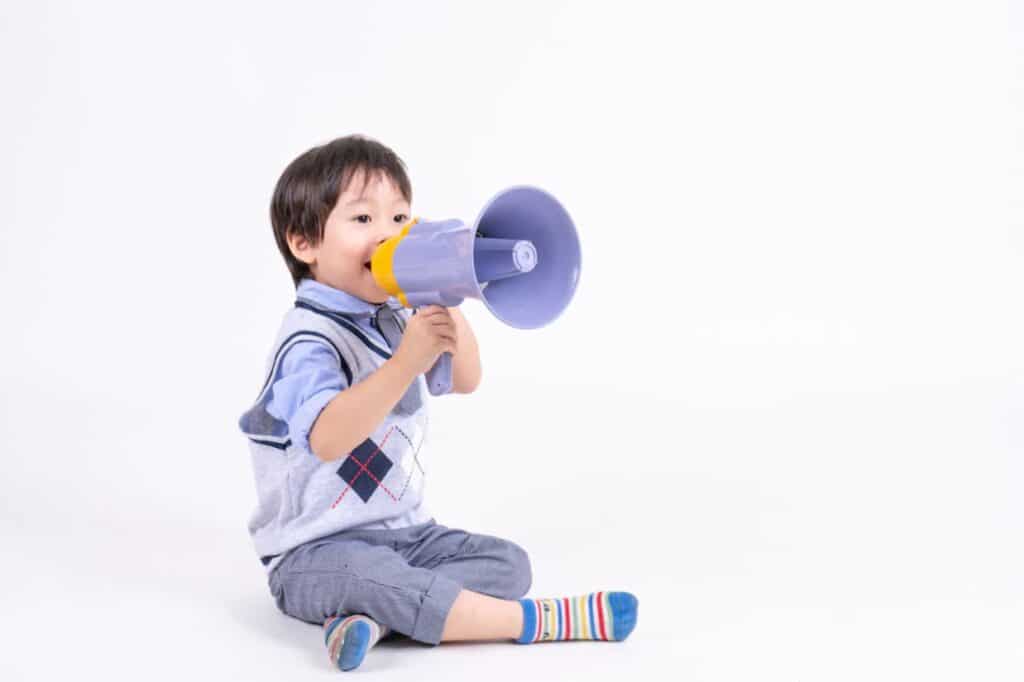
Every person carries countless thoughts and emotions all their lives, however, not everyone is able to express them effectively. Imagine a world where communication would be so fluid, thoughts expressed with transparency – without the slightest fear of being misunderstood. Sounds surreal, isn’t it? On the contrary, not being able to express one’s needs, or failing to understand others can lead to chaos, conflicts, social withdrawal, and self-damage.
Understanding Language Disorders –
The inability to either understand or express words is known as a language disorder. Messing up grammar, words, syntax or a lack of basic vocabulary can indicate an LD. Early training in communication skills might be a helpful tool for such children. Although, along with children who develop a language disorder, each child needs to hone the skill of communicating. To perceive and convey is a vital need.
If we can give our children one gift, may it be the ability of powerful self expression? Kids especially tend to be misunderstood, frequent occurrences may even impact their self-esteem lifelong. Although communicating might seem to be an innate skill, facilitating communication can have miraculous effects on children. Brainnovation’s trainers seek to build that confidence in children that allows them to overcome their barriers and learn how to express themselves freely. The non-judgemental environment motivates them to come out and convey their thoughts explicitly.
But, you also need to remember – that professionals can assist you in meeting the communication goals you set for your child. But you know your child best, you care the most about your child, and you are the most constant and important person in your child’s early years. Here are a few ways that can help children with their speech and language realms.
Respond to your baby’s gestures, looks and sounds
Even the simplest actions like putting their arms out can be responded to. Picking them up, replying in basic words and making eye contact in response to their cooing and gazing will show your baby that their communications are effective, encouraging them to continue developing the skills.
Talk with and listen to your child
Ask questions that encourage them to dwell and express – like “What do you think about today’s rainy weather?” “Where do you think the rain goes?” “How do you think the rain helps flowers grow?” “Why is the sky so gray?” This will help your child see themself as a good communicators further motivating them.
Help children build on their language skills
Use their surroundings, prompting them to turn basic words into simple sentences. Words like apple, and yummy can be used to build upon them, teaching them to add words like ‘is’, ‘I like’ to make full sentences.
Teach your child about non-verbal communication
“Do you see how your sister is holding her hands up to cover her face? She doesn’t like it when you throw the ball so hard. I know you can throw it softer so she will want to keep playing catch with you.”
Respect and recognize your child’s feelings
Children are naturally more likely to share their ideas and feelings confidently if they know they won’t be judged, teased, or criticized. Even the negative ones need to be expressed in order to be dealt with. You need to understand the underlying emotions behind their actions to be able to help them. It is possible to empathize with a child’s experience, yet disagree with his behavior. For example, ‘I know you find math a bit tough, but you need to stop distracting the class and ask for help instead’.
Read together
Develop a love for the written word in your child. Ask them about the characters or what the story might lead to. Listening to you read their favorite book, or listening to their own voice while reading aloud teaches more than literacy and language skills. He is learning that you value his interests and choices, and that you love him and enjoy being close to him. Studies show that lifelong readers are those who, as children, simply found reading a pleasurable experience. Sometimes the story is forgotten but the experience remains!
Narrate what you do as you go through your daily routines
This helps your child connect words with objects and actions. “I am chopping some tomatoes and chillies, mixing it into your favorite egg!” Talk about what you’re doing as you care for your child. “Here goes your right hand into the dark tunnel, it is finding its way through the sleeve and here it came out alive!” Talk as you play together, this helps them learn the daily words and form a structure.
Encourage your child to keep a journal
Once children have thought it through, it becomes easier for them to communicate. Writing in a diary or journal about day-to-day activities and feelings may help. The process can make it easier for your child to form thoughts to share with others. This can ultimately make your child feel more prepared and confident.
Overcorrection is one big NO
Avoid overcorrection and being overcritical while teaching your child to speak well. The pursuit of perfection will only discourage him.
Teach them how to listen
Training children to listen mindfully will help them indulge in proper conversations without feeling the urge to interrupt or getting impatient.
These are just a few ways to help children build better communication skills. Speech and Language being one of the most important skills for our children, Brainnovation incorporates communication methods in their training programs that enables children to reach their full potential. Skills like proper listening, understanding, relating, sequencing and expressing are trained to bring out a confident, thriving child who will never be deprived of his needs because he failed to convey them.






